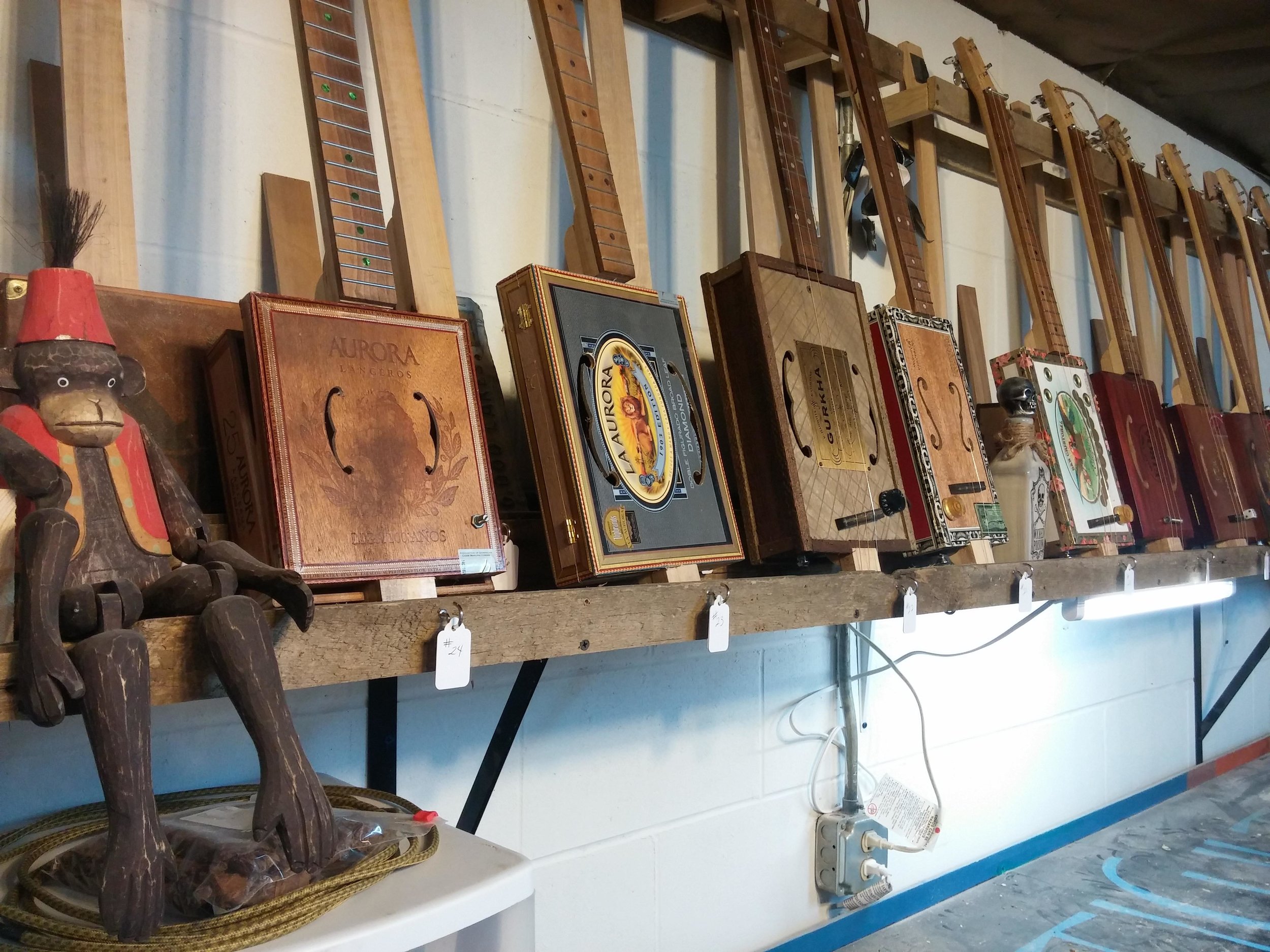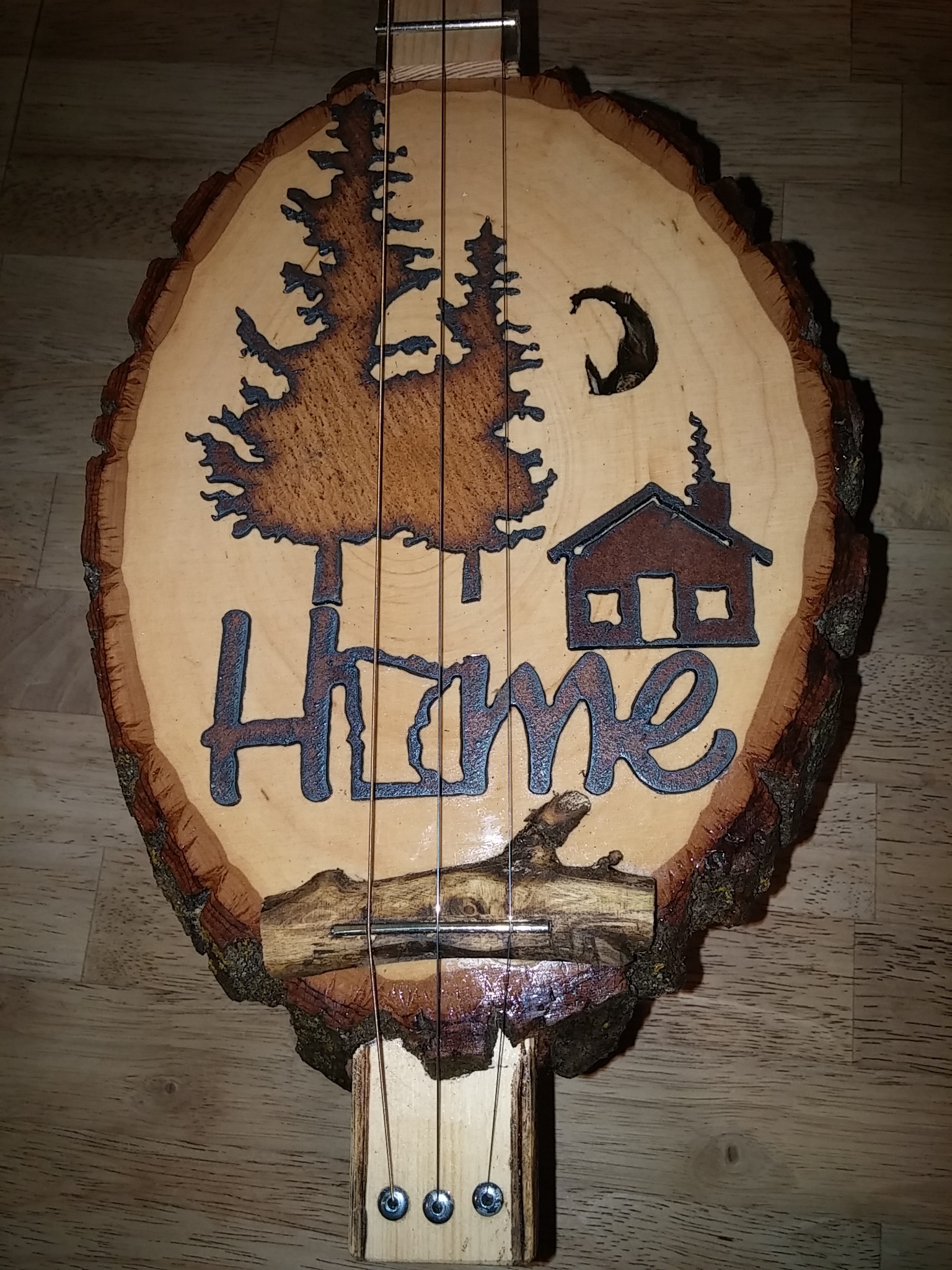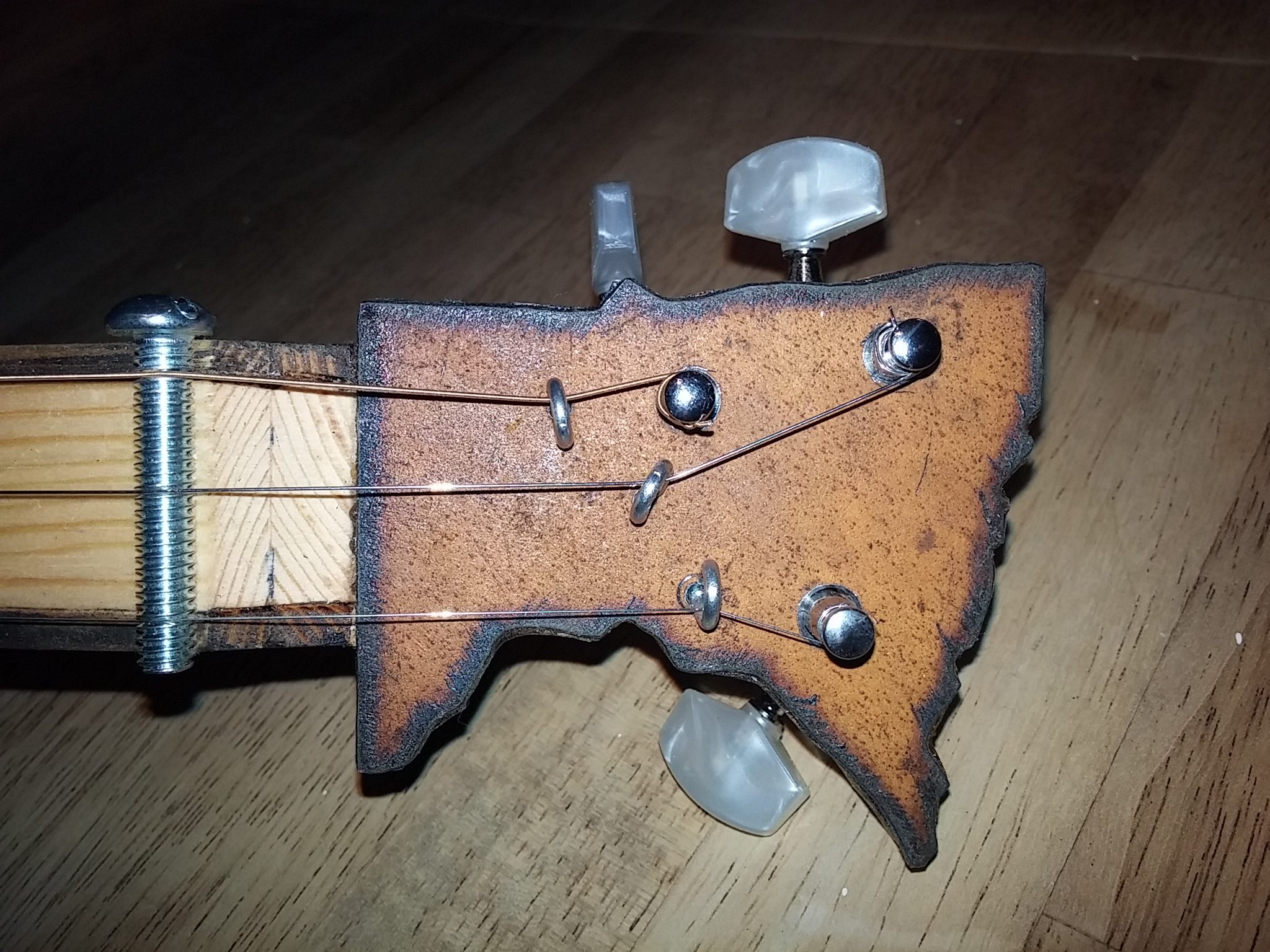Gipson Shoemaker
As a craftsman, Gipson Shoemaker likes to build things. As an aspiring musician, he just loves the gritty, raw sound they create. And as an artist, he loves the idea that a functional little piece of art will find its way into other people’s hands where they in turn will create more art of their own. Through Lucky Devil Cigar Box Guitars, all of Gipson's guitars are built from scratch and meet rigorous standards of quality. Every product is locally produced and distributed in the heart of Minnesota and because his is a family business, Gipson promises that your guitar will be one of a kind. No exceptions. To meet Gipson and learn more about Lucky Devil Cigar Box Guitars in person, be sure to stop by the upcoming Junk Bonanza at Canterbury Park September 21-23! Read our full Junk Bonanza preview here.
 Talk about the beginnings of Lucky Devil Cigar Box Guitars. What inspired you to begin this endeavor?
Talk about the beginnings of Lucky Devil Cigar Box Guitars. What inspired you to begin this endeavor?
The beginning of Lucky Devil Cigar Box Guitars started as a hobby 7 years ago. I had built a decorative painting and mural business over the course of 10+ years prior to Lucky Devil that was wiped out due to the recession. I lost everything. I just spent years learning a trade, 10 more years developing it into a business and in the blink of an eye it came to a screeching halt. It didn’t matter that I put all that time into it. It just came down to the fact that people stopped building oversized houses and I, like a lot of others, was just collateral damage. The saddest part was that I never really loved what I was doing. I was just taking advantage of the market demand and the fact that I could do the work. So in a lot of ways I was just as guilty as those at the top who started the whole housing decline. I didn’t see it at the time, but in hindsight I see that now. The guitars were just a diversion at first. A way to take my mind off my problems and do something just for me with no ulterior motives or ambitions other than to see if I could. I had always wanted to make regular guitars but lacked proper tools or training and the budget to invest. When I discovered cigar box guitars I knew I had enough tools and odds and ends laying around that I could probably make one. I was inspired by others who had built them and motivated by the need to create something for the right reason. That was about 300 guitars ago.
Have you always been creative? How does your work allow you to tap into your creativity?
I have been creative from the word go. I’ve been drawing since I could remember holding a pencil. Even as a little kid I was just happier drawing my own pictures than coloring in someone else’s. Over the years I also painted, sculpted, airbrushed, and even got a degree in 3D animation because I just assumed I should adapt to the new world order of art and go digital. It’s a little more than ironic I ended up getting as far as humanly possible away from that world and essentially going back in time to pursue a craft that dates back to the civil war with hand made instruments.
 What is unique about utilizing a cigar box to make a musical instrument? What other items have you utilized?
What is unique about utilizing a cigar box to make a musical instrument? What other items have you utilized?
What makes this craft unique is that it has no real rules and it’s actually encouraged to think outside the box, so to speak. One of the elements that attracts me to this form of expression is actually the problem solving. You spend more time trying to get around obstacles than you do actually making a guitar some days. But in the end when it all comes together and you plug it into an amp for the first time and get that soul stirring sound to emanate from it, it’s almost….magical.
I once had the privilege of meeting one of the premier acoustic guitar makers of our time. He told me that people always asked him about his process like it was some sort of mystical voodoo but that the reality is that it’s not mystical at all but extremely math based and just knowing how to operate cnc machinery and other tools. He said that is was detail intense but not mystical. I guess that’s why I’ve chosen to stick with the approach I have because there’s still some magic to be found in it. Along with cigar boxes I’ve also made guitars out of shovels, gas cans, bedpans, ammo boxes, and even vintage lunch boxes just to name a few.
Do you enjoy working with found or thrifted items that you can recycle and repurpose?
Half of the fun is just hunting some of this stuff down and getting a bargain. Sure, I could go online and buy a vintage oil can in pristine condition, buy some prefab guitar neck and top of the line hardware and it would look and sound great. A lot of people do it and really enjoy it. But for me it’s kind of like drawing my own pictures or coloring someone else’s. I just get so much more satisfaction out of finding an old gas can for a dollar, making my own necks and fretboards from scratch, and digging through a bunch of odds and ends to make something truly one of a kind. That sense of pride from taking someone else’s garbage and seeing it as something creative and useful just can’t be bought.
In terms of living and making in Minnesota, do you feel connected to this place? Have you found a creative community here?
Minnesota is a great place to make a living as an artist of any kind but especially as a maker. People here are so progressive and open minded which is great, but they are also salt of the earth and grounded and really appreciate when something is hand made. We value a work ethic in the Midwest which is hard to match but when you can add an artistic flair to that work ethic it’s really embraced here on a level you don’t see often in other places. I think it’s because it’s essentially a twofer! And you know how much Minnesotans LOVE a good deal!
Who do you make instruments for? Is the buyer the inspiration of your design process? Or do you make things because you love them?
I design my instruments selfishly. In other words I make what I would want to buy. I don’t make what I think will sell or what I think others might want. When I’m excited about the design or idea I tend to go over the top and it must come through to the audience because I don’t tend to have much inventory collecting dust. I think it’s obvious to most people that I put a lot more into the guitars than I’m asking for in the price tag. Again, Minnesotans know a good deal when they see one! A wise man once told me that if I wanted to stay in business for long that I have to be willing to give more than I get. He was right.
Do you feel like making and creating through your business allows you to contribute to something larger than yourself?
At the end of the day the real reward in being a maker is knowing that my product lives on without me. The guitar I make today is probably going to end up in the hands of someone more musically talented than me and bring joy to those who hear them play. And who knows, in turn they might be inspired to learn to play a guitar, or make one. And the cycle continues. Just like repurposing what might be considered trash into something functional and beautiful. Art doesn’t have to end with it’s maker to live on as art. That’s a really powerful way to get to make a living.




